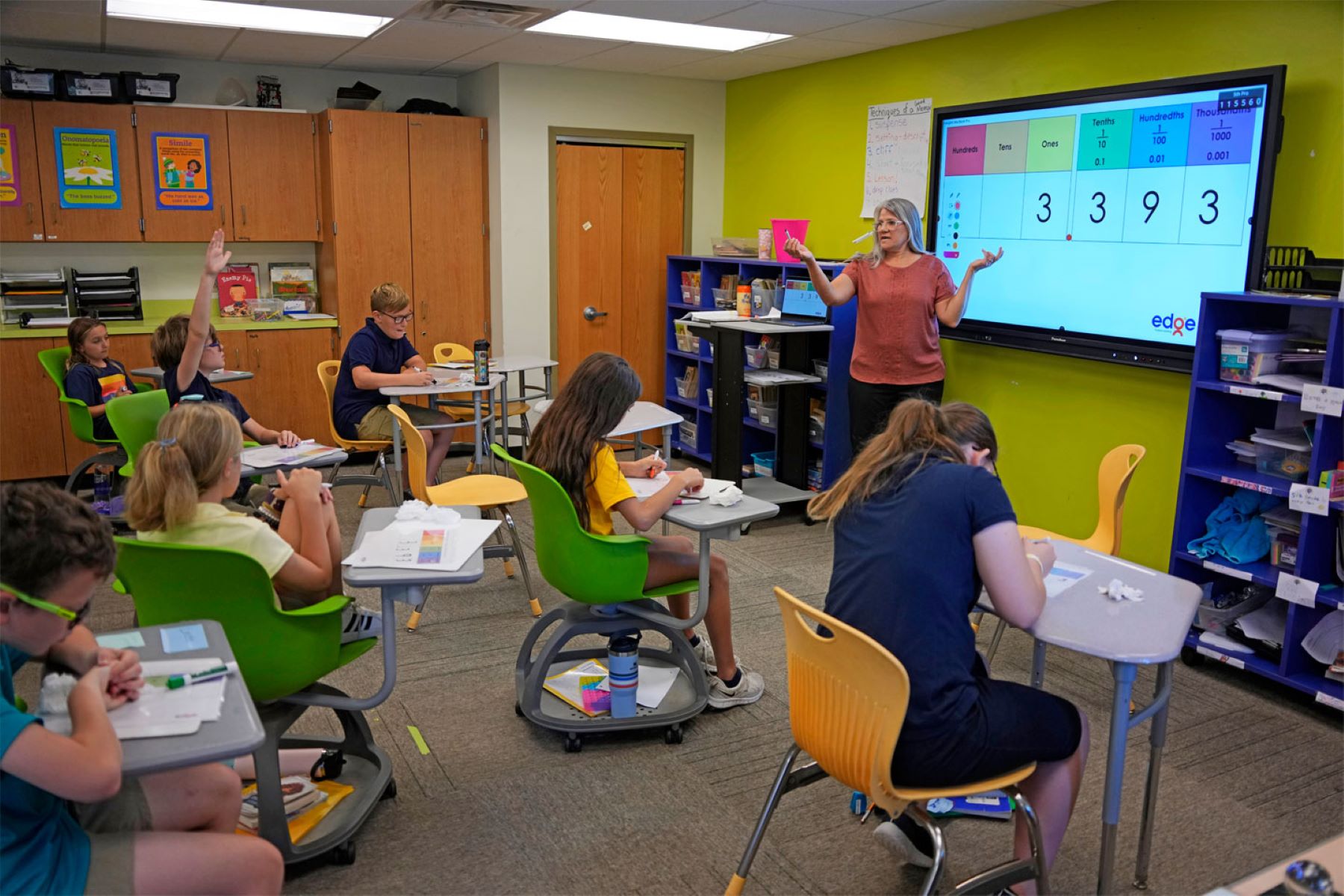
Special education is a crucial component of our educational system, providing support and tailored instruction to students with disabilities. However, there are often misconceptions and misunderstandings surrounding the field of special education. In this article, we will debunk 18 common myths and shed light on the facts about special education.
By addressing these myths, we aim to increase awareness and understanding of the challenges and successes within the special education community. Whether you are a parent, teacher, administrator, or simply curious about special education, this article will provide you with valuable insights and accurate information. So, let’s dive in and separate fact from fiction when it comes to special education.
Key Takeaways:
- Special education is not just for severe disabilities. It helps students with diverse needs, including gifted students, and focuses on high expectations and individualized support.
- Special education promotes inclusivity and collaboration with general education, providing tailored support for students with disabilities within an inclusive educational framework.
Myth 1: Special education is only for students with severe disabilities.
Fact: Special education services cater to a wide range of students with diverse needs, including those with mild to moderate disabilities, learning disabilities, intellectual disabilities, autism, ADHD, and more.
Myth 2: Special education segregates students from the regular classroom.
Fact: Special education emphasizes inclusion and providing individualized support within the regular classroom setting whenever possible, promoting interaction and socialization with peers.
Myth 3: Special education is a separate school.
Fact: Special education can be provided in various settings, including separate classrooms, resource rooms, or through support within the general education classroom.
Myth 4: Special education is not necessary for gifted students.
Fact: Special education also addresses the unique needs of gifted and talented students, providing enrichment opportunities and tailored instructional strategies to support their advanced abilities.
Myth 5: Special education is a one-size-fits-all approach.
Fact: Special education is highly individualized, with specialized plans, interventions, and accommodations designed to meet each student’s specific needs.
Myth 6: Special education means lowering academic expectations.
Fact: Special education focuses on setting high expectations for all students, while providing the necessary support and accommodations to help them reach their full potential.
Myth 7: Special education teachers are less qualified than regular education teachers.
Fact: Special education teachers undergo specialized training and certifications to equip them with the skills and knowledge to meet the diverse needs of students with disabilities.
Myth 8: Special education is a financial burden on schools.
Fact: While special education services require additional resources, they are mandated and funded by federal and state laws to ensure that all students receive appropriate and necessary support.
Myth 9: Special education students cannot participate in extracurricular activities.
Fact: Special education students have the right to participate in extracurricular activities and should be provided with the necessary accommodations and support to facilitate their involvement.
Myth 10: Special education is only focused on academic support.
Fact: Special education encompasses a holistic approach, addressing not only academic needs but also social, emotional, and behavioral aspects to promote overall well-being.
Myth 11: Special education is a permanent label.
Fact: Special education is a flexible system that regularly monitors and reassesses students’ progress. The goal is to provide appropriate support so that students can eventually transition out of special education services if their needs change.
Myth 12: Special education is only for children.
Fact: Special education services are available for individuals of all ages, from infants and toddlers through adulthood, ensuring that individuals with disabilities continue to receive support throughout their lives.
Myth 13: Special education students are less likely to succeed in higher education or employment.
Fact: With appropriate support and accommodations, special education students can achieve academic success and go on to pursue higher education or meaningful employment, just like their peers.
Myth 14: Special education is a result of poor parenting or lack of discipline.
Fact: Special education focuses on addressing students’ specific learning needs, which are not caused by parenting or disciplinary issues. It is about providing the necessary tools and strategies to help students thrive academically and socially.
Myth 15: Special education students are limited in their career options.
Fact: Special education equips students with the skills, support, and accommodations needed to explore a wide range of career paths and succeed in their chosen fields.
Myth 16: Special education is a burden on students without disabilities.
Fact: Special education benefits all students by fostering inclusivity, empathy, and understanding of individual differences. It creates a diverse and enriched educational environment.
Myth 17: Special education is a form of “dumbing down” education.
Fact: Special education is about providing equitable opportunities, tailored instruction, and targeted supports to ensure that students with disabilities can fully access and engage in the general curriculum.
Myth 18: Special education is a separate system disconnected from general education.
Fact: Special education works collaboratively with general education to provide the necessary support and services for students with disabilities within an inclusive educational framework.
Understanding the realities of special education is crucial in promoting inclusivity, fostering positive attitudes, and ensuring equal opportunities for all students. By debunking these myths, we can create a more supportive and inclusive educational environment.
Conclusion
In conclusion, understanding the myths and facts about special education is crucial for creating an inclusive and supportive learning environment for all students. By debunking these misconceptions and spreading accurate information, we can ensure that every child has equal opportunities to thrive academically, socially, and emotionally.Special education plays a vital role in providing tailored instruction and support for students with diverse learning needs. It is important to recognize that special education is not a one-size-fits-all approach but rather a personalized approach that takes into account the unique strengths and challenges of each student.By addressing the myths surrounding special education, we can break down barriers, promote inclusion, and foster a society that celebrates diversity and empowers every individual to reach their full potential.
FAQs
Q: Is special education only for students with intellectual disabilities?
A: No, special education is designed to support students with a wide range of disabilities including learning disabilities, emotional and behavioral disorders, autism, and physical disabilities.
Q: Are all special education students taught separately from their peers?
A: Not necessarily. Inclusive education is an important approach in special education where students with disabilities are included in general education classrooms with appropriate supports and accommodations.
Q: Is special education placement permanent?
A: Special education placement is determined through an individualized assessment and can be reviewed and adjusted based on the progress and needs of the student. It is not necessarily a lifelong placement.
Q: Do special education students have lower academic expectations?
A: Absolutely not. Special education is designed to provide appropriate supports and accommodations to help students meet their academic goals. The expectations for special education students are individualized and based on their unique abilities and potential.
Q: Are parents involved in the special education process?
A: Yes, parents play a crucial role in the special education process. They are involved in the assessment, development of Individualized Education Programs (IEPs), and ongoing collaboration with teachers and professionals to ensure their child’s needs are met.
Was this page helpful?
Our commitment to delivering trustworthy and engaging content is at the heart of what we do. Each fact on our site is contributed by real users like you, bringing a wealth of diverse insights and information. To ensure the highest standards of accuracy and reliability, our dedicated editors meticulously review each submission. This process guarantees that the facts we share are not only fascinating but also credible. Trust in our commitment to quality and authenticity as you explore and learn with us.


